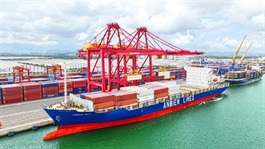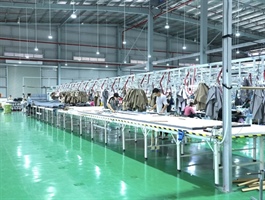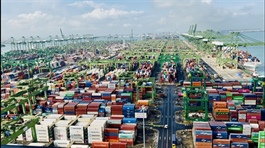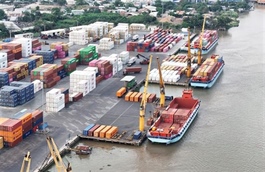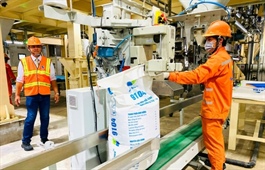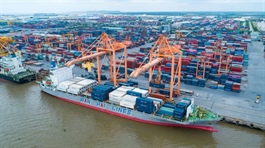IFRS adoption relies on leadership mindset
IFRS adoption relies on leadership mindset
The Economic - Finance Magazine organised an online roundtable on International Financial Reporting Standards (IFRS) on July 24 to discuss the process of converting from Vietnamese Accounting Standards (VAS).
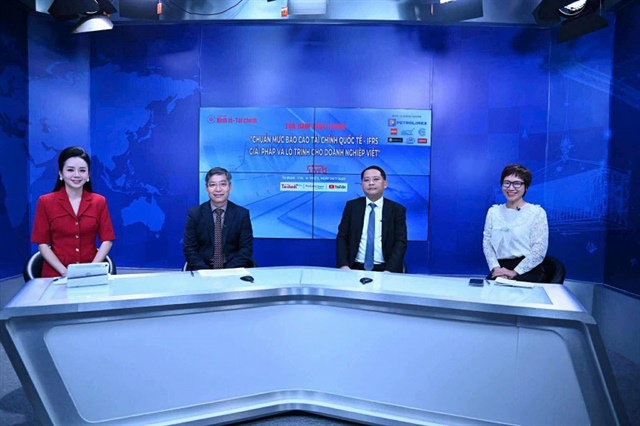
The online roundtable on "IFRS - Solutions and roadmap for Vietnamese enterprises" |
While international economic integration is deepening, the application of IFRS is becoming an urgent requirement for Vietnamese enterprises, especially enterprises looking to mobilise foreign capital and participating deeply in the global supply chain.
More than 160 countries and territories in the world have adopted IFRS, so this is a necessity for countries aiming to integrate deeply and effectively into the global value chain.
Tran Hong Kien, deputy general director of PwC Vietnam, shared his understanding of IFRS, their global application, and recommendations for Vietnam. “IFRS are based on principles, requiring businesses to accurately reflect the economic nature of transactions. To do that, the boards of directors needs to proactively build internal control systems and transparent financial processes. Successful IFRS application does not rely on the accounting department, but from the real commitment of the leadership.”
As a business providing accounting and auditing training services to businesses, Nguyen Thi Thuy, training manager of Auditcare & Partners Vietnam (ACV), gave a vivid assessment of the current status of IFRS adoption in domestic businesses.
“The biggest difficulty is not cost or technology, but leadership thinking. If leaders do not see IFRS as a strategy to enhance competitiveness, there will be no specific actions. This is a very favourable time for transformation because the Ministry of Finance (MoF) and professional associations have created a legal corridor and provided adequate training,” she emphasised.
Experts at the roundtable also said that IFRS are not simply a change in accounting techniques but a comprehensive shift in financial management thinking, requiring businesses to standardise data systems, upgrade technology, restructure processes, and train personnel.
Trinh Duc Vinh, deputy director general of the MoF's Accounting and Auditing Supervision Department, said that Vietnam's GDP last year reached about $470 billion, while import-export turnover reached $786 billion, equivalent to 165 per cent of GDP. This figure reflects the level of deep integration of the Vietnamese economy into the global trade chain. Therefore, IFRS adoption is no longer a desire, but has become an inevitable requirement.
"IFRS are not a barrier but an opportunity to help businesses increase transparency, standardise financial information, improve access to capital, and affirm their position in the international market," Vinh emphasised. "The application of IFRS not only improves the quality of financial reporting, but also plays an important role in upgrading the stock market and affirming Vietnam as a full market economy."
He added that the MoF is providing support for businesses to enter the IFRS application roadmap via the legal framework. The MoF is building a circular for the application of IFRS in Vietnam, creating favourable conditions for businesses to apply IFRS, and detail each subject of its autonomous and voluntary application.
"To support businesses in terms of human resources and technology, the MoF will continue to coordinate with professional associations and international organisations such as ACCA and the ICAEW to organise free training courses, and improve the capacity of accountants, auditors, and business leaders," Vinh added.
- 14:17 25/07/2025



